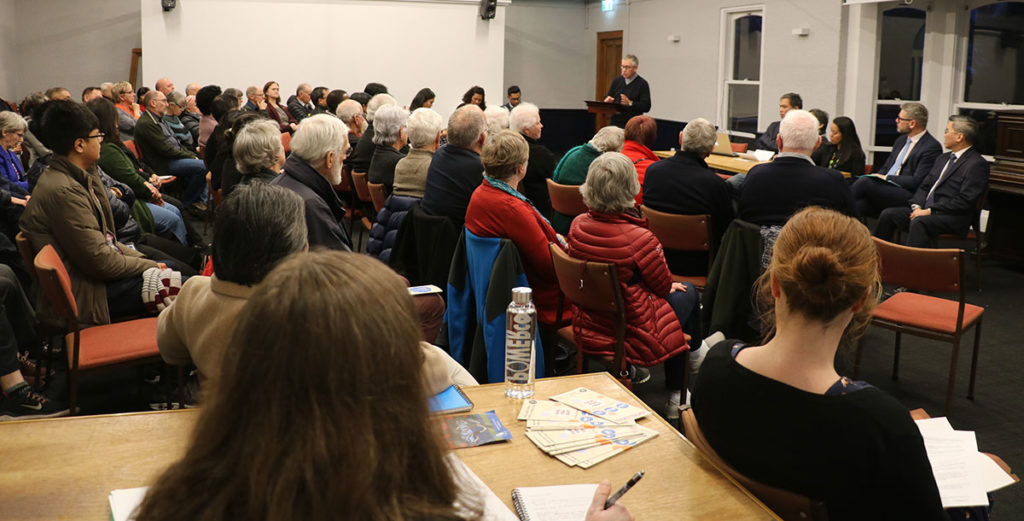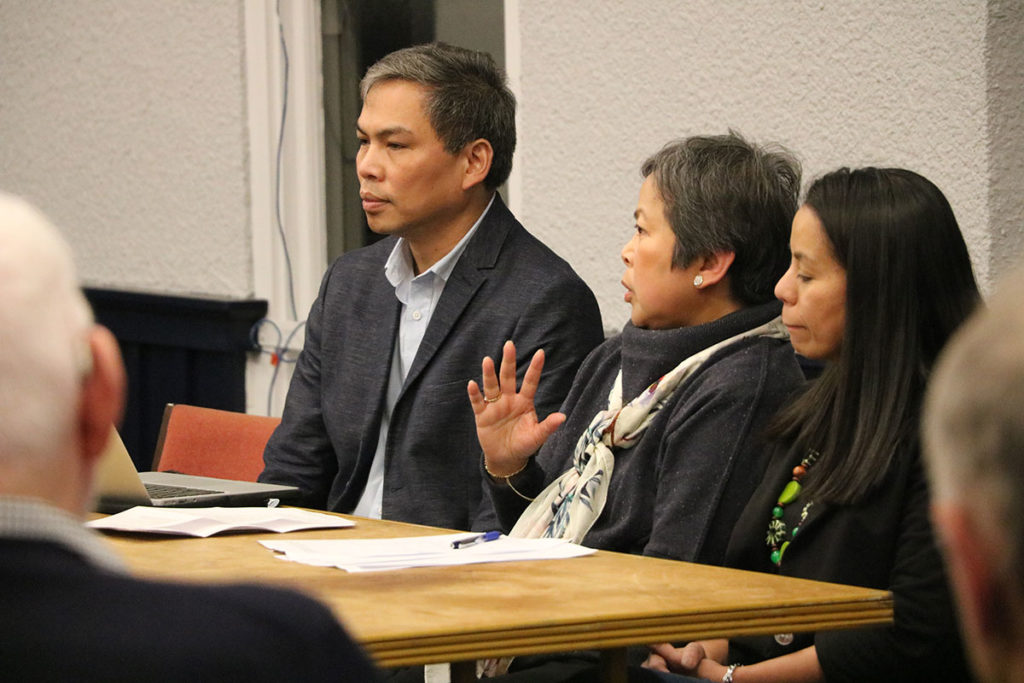WelCom November 2019
Lisa Beech
Befriending new people at Mass led members of the Catholic Filipino community in Kāpiti on a journey to support newly arrived Filipino workers practically, socially and legally.
Around 120 people gathered at a Social Justice Week event at Connolly Hall on Wednesday 11 September to hear perspectives on fairness and unfairness at work. Speaking were from members of the Filipino community, Cardinal John Dew, Minister of Workplace Relations Iain Lees-Galloway, and National MP Paulo Garcia. The Wellington Archdiocese Commission for Ecology, Justice and Peace hosted the meeting with the support of the Society of St Vincent de Paul and Caritas Aotearoa New Zealand.
Evita McGuire, of the Barangay Santa Maria Assumpta of the Wellington Catholic Filipino Chaplaincy, explained how members of Our Lady of Kāpiti parish experienced a noticable increase in new arrivals, as Filipino construction workers arrived for a range of projects within the Wellington region.
As they got to know new arrivals, they first met immediate needs, for warm clothing and bedding, and then started a social group. ‘Almost all had left behind wives and families in the Philippines, and were missing companionship,’ Evita explained. A monthly drop-in centre led to legal education sessions with the Whitereia Law Centre on migration and employment issues.
Joey Domdom and Mayie Pagalilauan outlined their research into experiences of Filipino caregivers in rest homes. Mayie said Filipino caregivers, who are mostly qualified nurses in the Philippines, are treated as ‘unskilled staff’ in New Zealand, and have to reapply for their visas regularly in order to continue to work here.
Mayie said caregivers described being asked to work beyond their rostered hours, undertaking orientation or training as volunteers without pay, and being given additional cleaning or housekeeping duties in addition to caring for residents. They also had to deal with both physical and psychological abuse, including hair pulling, slaps and racist comments from residents. Because of their temporary work visas, many felt unable to challenge their employers.

Cardinal John Dew addresses the Social Justice Week gathering. 
Joey Domdom, Evita McGurie and Mayie Pagaliluan (l-r) address the Social Justice Week gathering.
Photos: Kate Go, Caritas Aotearoa New Zealand
Workplace relations Minister Iain Lees-Galloway said some situations described were clearly outside New Zealand’s employment laws. He acknowledged many employers provide working conditions that exceed the minimum standards, but also situations of exploitation exist that undercut businesses who do the right thing by their employees.
He outlined actions being taken by government agencies, including an increase in Labour Inspectors, increased funding for research, and the introduction of stand-downs which prevent employers who have breached employment law from recruiting further temporary migrant workers.
He also acknowledged the contribution made by community and faith-based organisations. ‘This work will not stop until migrant exploitation is stopped. Together we can make a difference to the lives of our valued and appreciated migrant workers.’
National MP Paulo Garcia told the meeting that the first vulnerability of Filipino migrant workers starts when thousands of workers apply for each opportunity to provide for their families. ‘People will do what they can, take what they can, to be able to work overseas.’
He said every New Zealander could start with smiling and being friendly with the workers we meet. As the newest MP in Parliament, he described himself as being on the lowest rung on the ladder. ‘Over there [Parliament], people don’t smile at me, and I feel the isolation.’
Cardinal John said international experience has shown that for people experiencing poor working conditions or restrained freedom of movement, sometimes church is one of the few places they are able to go.
‘Let’s listen, let’s watch out, let’s respond with kindness and welcome. My hope is that our church communities will be places of safety and sanctuary for everyone.’
Lisa Beech, Ecology, Justice and Peace adviser, Archdiocese of Wellington.